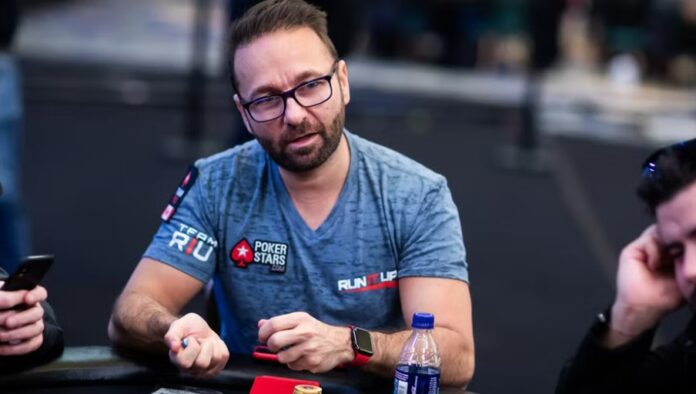Whether you’re just beginning to play poker or you’re already a professional player, you may be asking yourself if playing poker can really be a career. There are many things to consider, from study and practice to money management, bankroll management, and overcoming adversity. Here are some tips to help you get started on the right foot.
Bankroll management

Managing your bankroll as a poker player is one of the most important aspects of being a professional player. It can be very easy to lose money when you are not properly managing your bankroll. Having a bankroll is very important for a poker player as it can provide you with the buffer you need to keep going when you are on a bad run of cards.
There are many different philosophies on how to manage your bankroll. A good bankroll strategy involves choosing stakes you can afford, protecting your assets, and learning when to make a withdrawal. The most effective way to do this is to keep your bankroll in a single place.
Bankroll management is a skill that must be practiced and learned. It is important to remember that every decision you make in poker will impact your bankroll. It is also important to make sure you have the discipline to follow through on your plans.
Studying the game

Having a career playing poker may sound like a dream come true, but it’s not for everyone. If you want to be a professional poker player, you will need to dedicate a considerable amount of time and effort to learning the game. Moreover, you will have to maintain a level of motivation to make it all the way through to your goal. You will also need to be realistic with your expectations.
The fact is that poker is a complex game to begin with. To be a successful player, you will need to invest a lot of time in studying the game, as well as in maintaining a solid financial position. You also need to make sure that you aren’t doubling down on your poker chips, as doing so can cut your edge in half. Keeping detailed records of your playing habits will also help you avoid making the same mistakes in the future.
Developing a stable mindset
When it comes to playing poker, being able to develop and maintain a stable mindset can be an effective tool. The ability to stay composed under pressure, think strategically and understand when you may not be able to win a particular hand are all essential parts of any experienced poker player’s mental makeup. As your games progress, it is important to remain conscious of the fundamentals of the game while also being aware of how other players might approach similar situations.
Refreshing key strategies and recognizing patterns in other players’ behavior can help you adjust your strategy quickly in fast-paced scenarios and make critical decisions without getting carried away. Furthermore, establishing engagement tactics with players as they come and go from the table can keep things interesting and help manage the flow of individual games. Having a stable mindset helps sharpen logical thinking skills and provides insight into making simple but effective decisions during gameplay – both necessary traits for success in any game of poker.
Overcoming adversities

Playing poker professionally is not easy. There will be times when you must overcome adversities and remain focused on the long-term goal of becoming a successful player. To do this, you must have the right attitude and proper focus. You need to be willing to learn from your mistakes, keep studying and practicing, and never give up no matter what obstacles arise.
Making money playing poker

Making money playing poker is not as easy as it sounds. It requires dedication, knowledge, skill, and a willingness to take risks. You must also be disciplined in managing your bankroll and staying within your limits. Making money playing poker online professionally can be done, but it takes time and effort to make it happen.
Managing your money is also key to becoming a successful professional poker player. You must be able to plan and manage your funds carefully in order to stay afloat in the game. In addition, you should also make sure that you are getting the most out of each hand by utilizing proper risk management techniques. This way, you will not only maximize your chances of making money but also minimize your losses if luck goes against you.
The Pros and Cons of Making Poker a Career

For some people, poker can be more than an occasional hobby — it can be a full-time job or even a career. But before you commit to taking the plunge into making poker your livelihood, it’s important to understand both the potential benefits and drawbacks of doing so.
Pros
-Earning Potential: Professional players are capable of winning large sums of money with skillful play in tournaments and high-stakes cash games alike.
-Flexibility: Unlike more traditional jobs, there are no standard hours that must be met while playing poker professionally. You can choose when and where you’d like to play and how much time you’d like to devote to it.
Cons
-Capital: Becoming successful at playing any game takes money and skill, but too often there is an emphasis on having enough capital in order for players to have an advantage over their opponents. As such, aspiring professionals must pay significant amounts of entry fees for tournament play or risk larger funds during cash games.
-Volatility: Poker – like any gambling venture – comes with risks that go beyond just losing one session. Poker income often swings significantly from one month to the next; this unpredictability may prove worrisome for those seeking more consistent income streams on a monthly basis.
The last word

Ultimately, playing poker as a career can provide many rewarding experiences and financial rewards if done correctly. However, becoming a successful professional poker player takes dedication, hard work, and discipline. With the right mindset, bankroll management plan, study routine, and determination to succeed in spite of any obstacles that may come your way – there’s nothing stopping you from becoming the poker pro you always dreamed of becoming.









